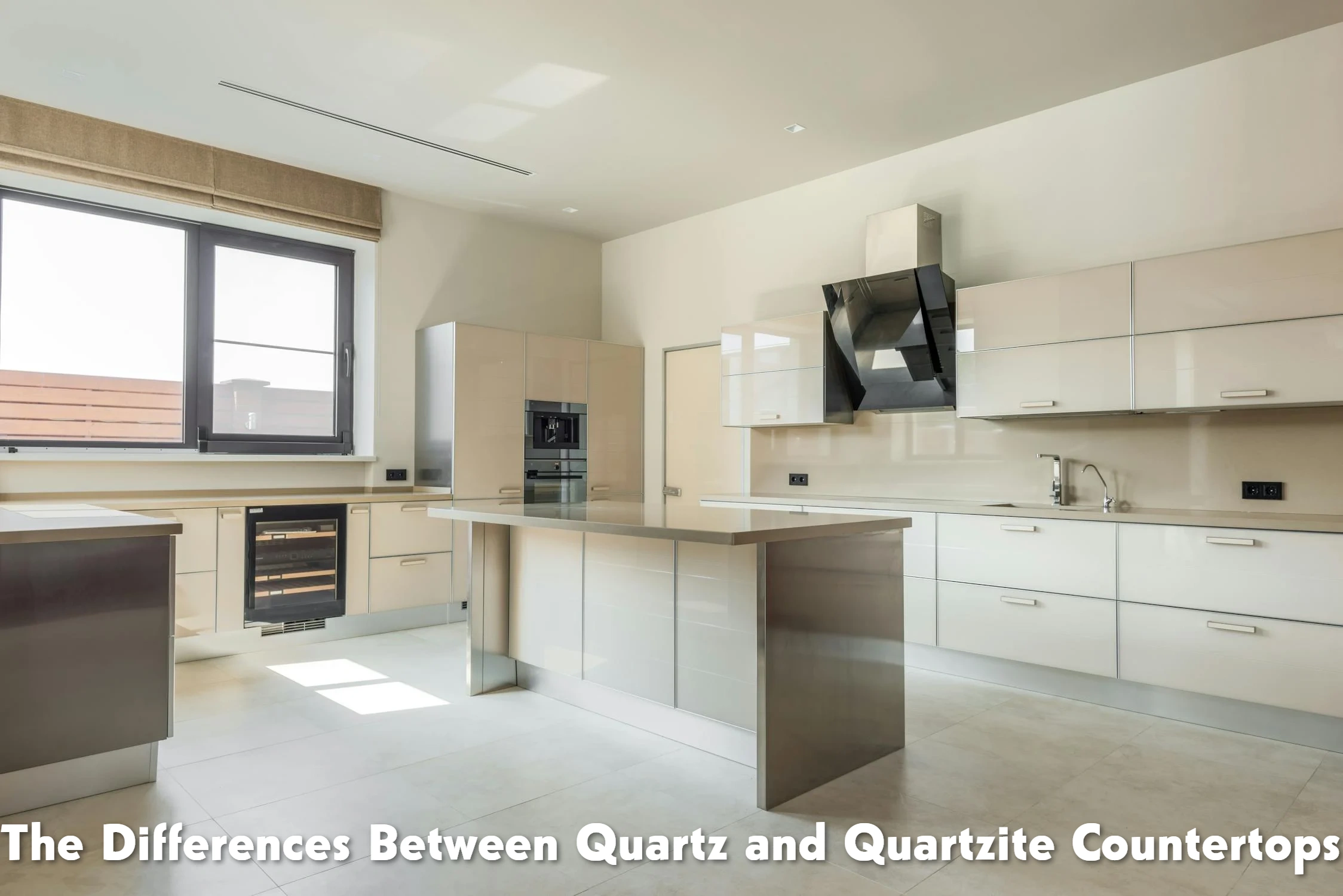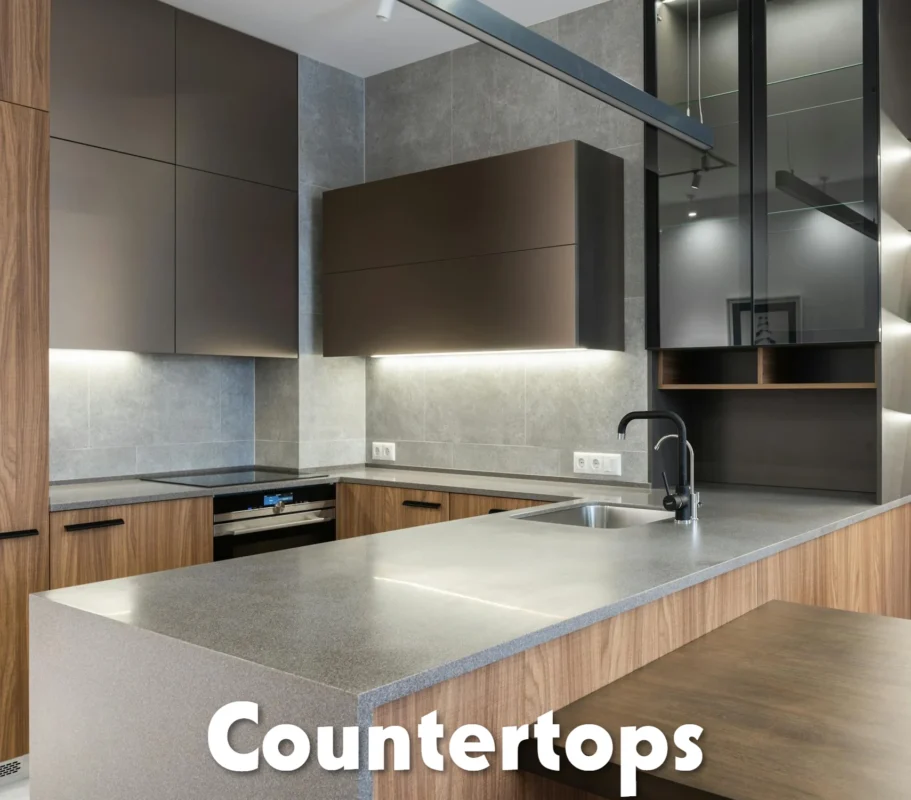Blog
The Differences Between Quartz and Quartzite Countertops

Whether you are renovating your kitchen or bathroom, choosing the right countertop materials can impact both functionality and appearance. Some low-maintenance options, like quartz countertops, require minimal upkeep while remaining resistant to scratches and stains. Durable and unique, quartzite countertops can be a good option for surfaces that endure daily use.
Whether you prefer a cohesive look with sleek quartz or want to highlight your kitchen cabinets with a contrasting material, understanding the differences between these countertops can help you decide.
Here are some differences between quartz and quartzite countertops:
| Feature | Quartzite | Quartz |
|---|---|---|
| Type | Natural stone | Engineered stone |
| Look | Unique, marble-like | Uniform, customizable |
| Durability | Very durable, heat & scratch resistant | Durable, less heat resistant |
| Maintenance | Needs sealing | Low maintenance |
| Best For | Classic, high-use kitchens | Modern, low-maintenance spaces |
| Cost | Higher | More affordable |
| Install Time | Longer | Quicker |
Quartzite
- Quartzite is a natural stone that starts as sandstone and fuses under intense heat and pressure. This process crystallizes the sand grains, creating a hard and durable surface.
- Each quartzite slab is unique, with distinct patterns and colors. Visually, quartzite often resembles marble and may be used in projects that prioritize organic variations in materials.
- It has the timeless and classic look of marble but offers greater durability, so you will not have to compromise performance for aesthetics.
Benefits of Quartzite Countertops
As a natural stone, quartzite countertops can withstand heat, so you may rest hot pots and pans on their surface without immediate effect. Quartzite’s dense structure makes it more resistant to scratches from knives and heavy appliances. To maintain quartzite’s appearance and avoid stains, countertops should be sealed periodically to reduce the surface’s porosity. Because of its durability, quartzite can be a long-term investment in functionality.
Quartz
- Unlike quartzite, quartz is engineered and not quarried. Fabricators mix ground quartz crystals, resins, pigments, and polymers to create a non-porous, highly durable surface.
- Because it is engineered, quartz usually has a more uniform pattern. Some manufacturers create quartz slabs in a wide range of colors, including black, gold, and pink.
- Contemporary designs or projects that require specific color schemes and textures might pair well with quartz countertops.
Benefits of Quartz Countertops

Quartz counters have a smooth, moisture-resistant surface that is less likely to become stained by spills like wine and coffee. Its non-porous surface also means that it resists mold and mildew growth, helping verify you have a clean kitchen environment. It does not require sealing, making it a practical alternative for busy households or in commercial environments. Although quartz countertops are not as heat-proof as quartzite countertops, they are still resistant to scratches and chips.
Which One Is Right for Your Project?
When deciding between quartz and quartzite countertops, review your daily routine. A natural stone countertop could be more useful if you do lots of cooking with hot pots, pans, and baking trays. Quartzite countertops are a good choice for home chefs or for households that spend a lot of time in the kitchen. The stone can double as a dining surface for large families when it is used for kitchen islands.
- If easy upkeep is your top priority, quartz might be a better fit for you. Low-maintenance quartz countertops are a safe alternative for vacation rentals and people who prefer a simple wipe-and-go routine, especially if spills are common.
- Quartz is also often more affordable regarding material cost and installation, making it more budget-friendly while still being functional.
Match the Material to Your Design Vision
- High-end and traditional spaces might pair well with quartzite. The natural variations in veining help create a sophisticated look that complements classic designs. Quartzite can pair well with warm wood tones and brushed metals like copper or rose gold.
- Quartz may offer more consistency in designs that follow contemporary, modern, or minimalistic styles. It can be used to create seamless visual flow across large counters, giving it the impression of being carved from a single stone.
- If you are thinking about getting cabinets in bold colors or adding a geometric tile backsplash, quartz will usually match your color palette without overwhelming the room.
Choosing a Professional and the Installation Process
Before making a final decision, review the installation process and how much maintenance your countertop will require. Natural stone might require more precision during fabrication and installation. This means quartzite countertops may take longer to be ready, so quartz could be a better solution if you are on a tight schedule. Professional stone fabricators know how to handle the slabs correctly, avoiding cracks or misalignments. A designer can help you decide which material works best with your environment. Find a trusted contractor to guide you through the selection and installation process today.
